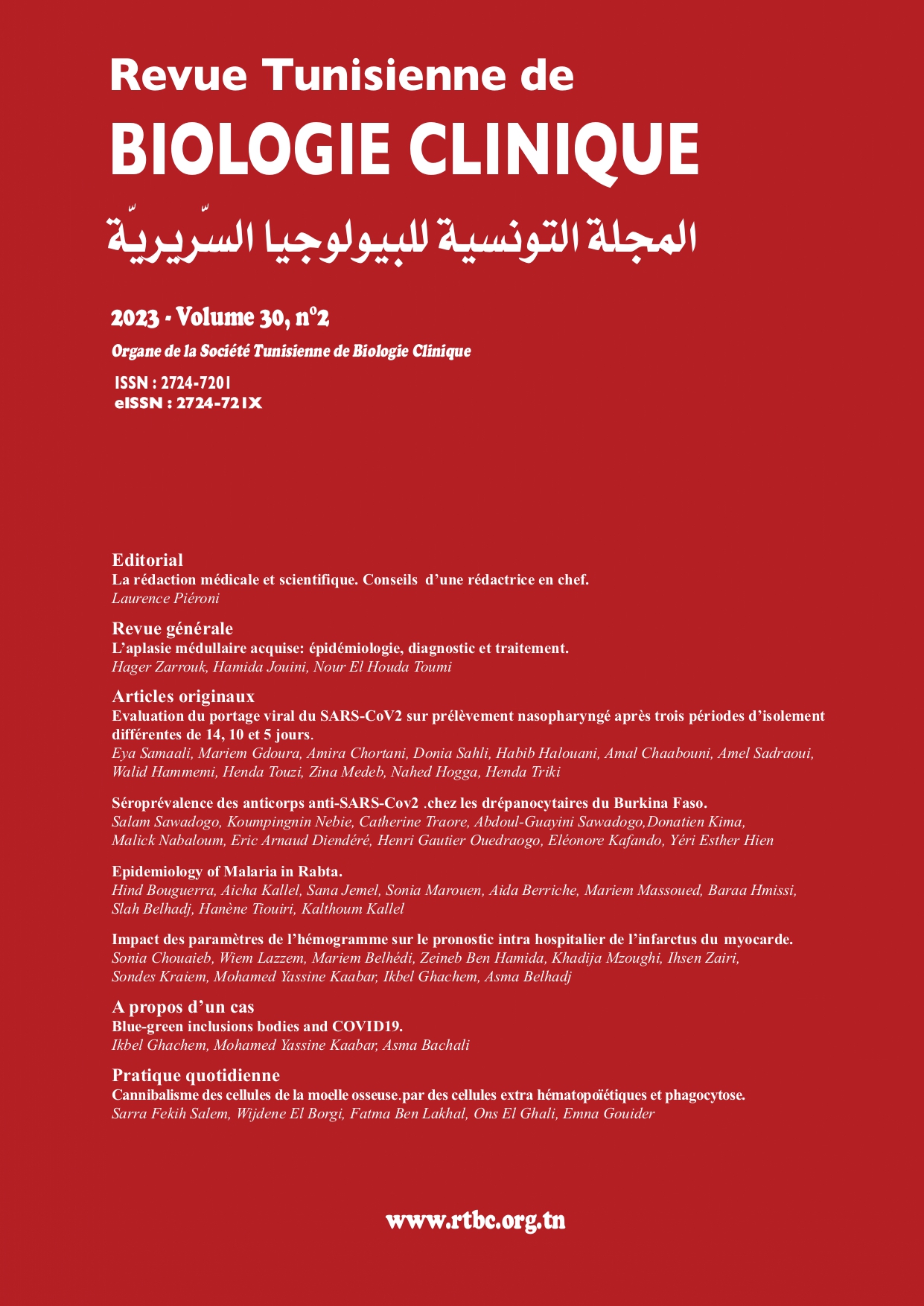Abstract
Introduction: Myocardial infarction is an important cause of death in the world. The objective of our work was to evaluate the impact of blood count abnormalities, until now little studied in Tunisia, on the prognosis of patients admitted for acute coronary syndrome. Patients and methods: This is a retrospective study carried out from April 12 to October 20, 2019, including patients admitted for myocardial infarction, in the cardiology department of Habib Thameur hospital. Epidemio-clinical and biological data have been collected from medical records and the hospital's computer system. The involvement of blood count abnormalities in the occurrence of cardiovascular events and deaths was analyzed univariate and then multivariate by stepwise downward Cox regression. Results: Our study included 100 patients with a sex ratio of 2.57 and an average age of 64 years. The blood count abnormalities detected were anemia in 41% with a female predominance of 53.5%, hyperleukocytosis (37%), thrombocytosis (2%), and thrombocytopenia (4%). Moreover, 26% of patients developed cardiovascular events and all had blood count abnormalities. The most common complication was acute pulmonary edema (33%). Anemia and hyperleukocytosis were significantly associated with the occurrence of complications with respectively p=0.002 and p=0.002 in multivariate analysis. No abnormality was significantly associated with death. Conclusion: Anemia and hyperleukocytosis were the most frequent abnormalities in patients admitted for myocardial infarction and were significantly associated with the poor prognosis of these patients.

This work is licensed under a Creative Commons Attribution 4.0 International License.
Copyright (c) 2023 Revue Tunisienne de BIOLOGIE CLINIQUE

